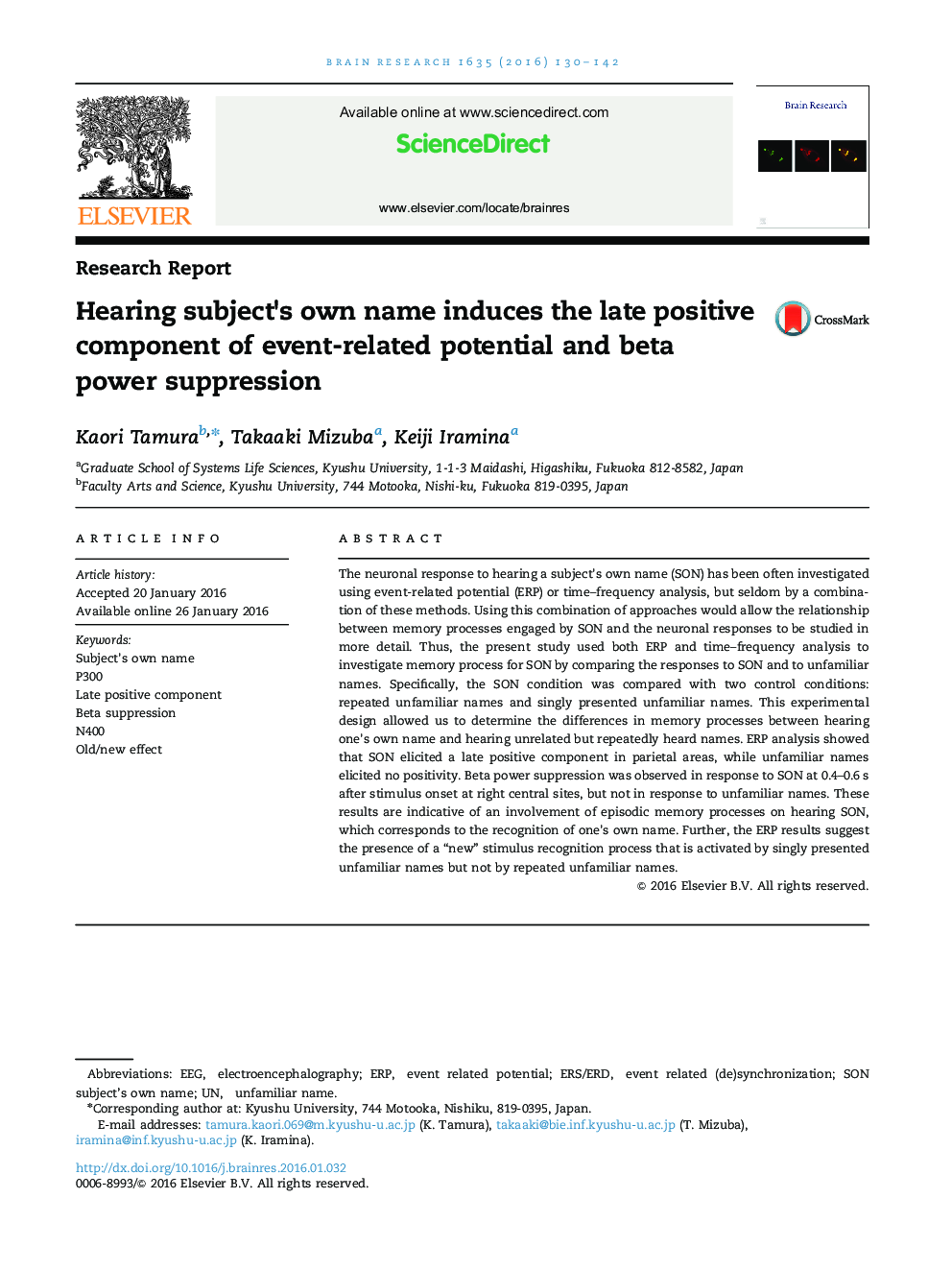| Article ID | Journal | Published Year | Pages | File Type |
|---|---|---|---|---|
| 6262599 | Brain Research | 2016 | 13 Pages |
â¢Late positive components were elicited in response to hearing subject׳s own name.â¢An N400-like negativity was elicited by unfamiliar names presented once.â¢Beta power decreased on hearing one's own name relative to others׳ names.â¢The SON positivity and beta ERD indicate the episodic memory recollection process.
The neuronal response to hearing a subject׳s own name (SON) has been often investigated using event-related potential (ERP) or time-frequency analysis, but seldom by a combination of these methods. Using this combination of approaches would allow the relationship between memory processes engaged by SON and the neuronal responses to be studied in more detail. Thus, the present study used both ERP and time-frequency analysis to investigate memory process for SON by comparing the responses to SON and to unfamiliar names. Specifically, the SON condition was compared with two control conditions: repeated unfamiliar names and singly presented unfamiliar names. This experimental design allowed us to determine the differences in memory processes between hearing one׳s own name and hearing unrelated but repeatedly heard names. ERP analysis showed that SON elicited a late positive component in parietal areas, while unfamiliar names elicited no positivity. Beta power suppression was observed in response to SON at 0.4-0.6 s after stimulus onset at right central sites, but not in response to unfamiliar names. These results are indicative of an involvement of episodic memory processes on hearing SON, which corresponds to the recognition of one׳s own name. Further, the ERP results suggest the presence of a “new” stimulus recognition process that is activated by singly presented unfamiliar names but not by repeated unfamiliar names.
